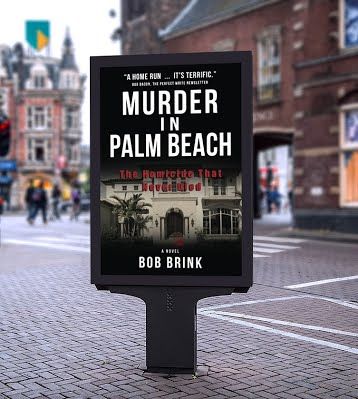Legal Thriller
Published: February 9, 2022
Publisher: Precipice Press
A lawyer defends a young Black man who was brutally assaulted by two
bigoted police officers and discovers a deeper conspiracy that endangers his
life.
Hiram Garbuncle is a veteran criminal defense attorney—as well as a
racist, miserly alcoholic. His life revolves around hoarding money,
following sports, pursuing sex, drinking—and the prideful practice of
law.
Alec Monceau is a Black man working to support his daughter’s family
in Trinidad. It is 2008, and his car carries an Obama bumper sticker. This
political advertisement leads to a superfluous traffic stop and a brutal
beating by police.
It goes against Garbuncle’s grain to defend a Black man from a charge
of violently resisting arrest, but he is so confident of winning that he is
negligent in the jury selection, and a mistrial occurs. He then discovers
incriminating evidence on the two cops, and his new challenge becomes how to
keep himself and his client alive pending a new trial.
BLOOD ON THEIR HANDS words) is a legal thriller that borrows themes from
the movies Gran Torino and My Cousin Vinnie. It relies on the author’s
experience as a newspaper reporter who once covered a Ku Klux Klan
meeting.
Excerpt
The overhead lighting bounced off Garbuncle’s face, which glowed with
after-shave lotion. His straight, graying hair was slicked back from a
receding hairline. He wore a bright yellow leisure suit a la the
nineteen-seventies, pressed and neat except for a small red wine stain on a
lapel. A fire-engine-red shirt and royal-blue tied completed his ensemble.
Glistening black patent leather shoes competed with his face for reflection
of the ceiling lighting.
Garbuncle motioned for Alec to rise, and pointed to the witness stand. Alec
walked with a hesitant gait, glancing to his right at the six-member
jury.
“Now, Alec, I want you to tell the court what happened on the evening
of April eighteen that led to your arrest.” Alec wore an anxious look,
and Garbuncle said, “Go ahead, Alec. You may speak.”
“I drive west on Lake Worth
Road, go home from Computer Freak. I work dere.”
“Excuse me, Alec. What time
of day was it?”
“About forty-five minutes
after 7 o’clock.”
“Was it beginning to
get dark?”
“Yes, but not all da
way.”
“So it was about as dark as
you? Never mind, that was a joke.” A broad smirk.
Judge Crabtree jerked his head
back, staring with eyes wide. Alec had a blank look.
“Tell us what happened
next,” said Garbuncle.
“I see red light in back
mirror, den I hear police car.”
“You mean you heard a
siren?”
“Yes, dat it. I forgot what
it called. I know should drive right side of road, but no can move. Cars in
dat lane. I go slow, and when cars past, drive to right lane. Police car
come behind me. I turn onto road at corner, go past water on side, den park.
I get out. Police park car behind. One walk to me. He ask me why I no move
over quick. I say no can, cars dere. He hit me on head wid
stick.”
“Do you mean his billy
club?”
“Dat what it called? Yes,
club—long, narrow.”
“Tell me which of those two
men sitting at that table”—Garbuncle turned back toward the
defense table and pointed—“which one struck you.”
Alec pulled his shoulders in and
hesitated. Garbuncle could see the fear in his client’s face.
“It’s all right. He
can’t hurt you now. You need to tell us which one struck
you.”
“Dat strong man, tall.
Young.”
Garbuncle pointed to him.
“You mean that one? Larry Pickens?”
“Yes.”
The cop’s face
was impassive.
“Did Officer Pickens say
anything to you?
“Yes. He yell at me I
resis’ arres’, and he teach me lesson.”
“What happened
next?”
“Den oder policeman come
from police car, say I need fix back light, no put Obama sticker on bumper.
I try tell him get light fixed tomorrow. He hit me in stomach wid club. I no
can breat’. Oder policeman hit me wid club back of neck.” He
placed his hand just above his shirt collar.
“I fall on ground. Dey put
handcuffs on me, pull me up. Hurt very bad. Dey injure my shoulder. I wear
ting for arm two weeks.”
“Do you mean a
sling?”
“Yes, yes. Doctor call it
sling.”
“Then what
happened?”
“Strong policeman ask where
I from. I say Trinidad. He hit me wid club low on legs. He say I look like
Obama. He say monkeys take over country. I tink he mean Obama and me
monkeys.”
The judge, his dome shiny through
strands of white hair, noticed Garbuncle trying to squelch a laugh, but
allowing a smile to open. “Counselor, do you think that’s
funny?”
Garbuncle saw, peering over the
top of wire-rimmed glasses, a stern face. His grin vanished like a rabbit
disappearing at a magician’s snap of the fingers. “Oh, no, Your
Honor. A joke I heard last night popped into my head for some reason. I
apologize.”
About the Author
Bob Brink is a journalist who worked with several large newspaper
organizations and a group of magazines. His byline has been on thousands of
news stories, features, and entertainment reviews.
He now is embarked on authoring books. His newest book, the legal thriller
Blood on Their Hands, follows Murder in Palm Beach: The Homicide That Never
Died, a roman à clef about a real, sensational 1976 murder that made
headlines for 15 years, and made news again a few years ago with a new
development in the case. The book became an Amazon best seller.
His other books are: Breaking Out, a coming-of-age novel; The Way We Were:
Short Stories and Tall Tales; and A Tale of Two Continents, a ghost-written
memoir. He has completed a work of creative nonfiction about a woman who led
an audacious life of crime and married a death row inmate who later was
beaten to death by guards; a search for a publisher is underway.
Brink has won numerous writing accolades and several awards, including
three for Palm Beach Illustrated, which won the Best Written Magazine award
from the Florida Magazine Association after he became copy chief and
writer.
Besides dabbling in short-story writing over the years, Brink immersed
himself in learning to play the clarinet and tenor saxophone. He performed
many years with an estimable, 65-piece community symphonic band, and played
a few professional big band gigs.
A product of Michigan and Iowa, Brink has a bachelor’s degree in
English and German from Drake University in Des Moines and completed
graduate journalism studies at the University of Iowa.
Contact Links
Purchase Link







